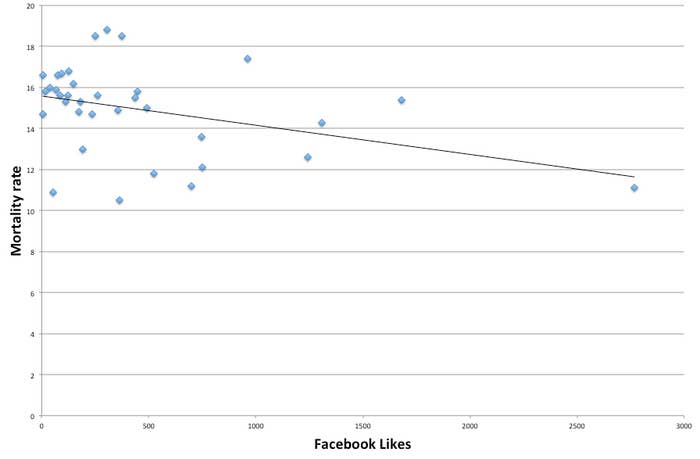Hospitals on Facebook

In a finding that seems either creepy or useful depending on how you look at it, a hospital's number of Facebook "likes" appears to be a decent predictor of how likely some patients are to die there.
Researcher Alex Timian and his coauthors looked at the Facebook pages of 82 hospitals in the New York City area. They also catalogued the mortality rates of heart attack patients at these hospitals, as measured by the percentage of said patients who died in 30 days.
They found that more Facebook likes meant lower mortality — every 1% drop in mortality rate was associated with 93 extra likes. The study authors think hospitals with lower mortality rates also have better patient satisfaction, and that satisfied patients are more likely to turn to Facebook to positively rate their experiences.
This is surprising for a couple of reasons. First, patients probably aren't aware of a hospital's mortality rate — it seems likely that some characteristics of hospitals both produce a positive experience for all patients and make the sickest ones less likely to die (one previous study found that hospitals with better patient satisfaction scores have lower mortality rates, but another found that individual patients who were most satisfied were most likely to die).
Second, it's interesting that satisfied patients (and/or their friends and family) actually turn to Facebook to "like" their favorite hospitals. We're probably far from the day when the average patient could use Facebook likes to choose where to get a quadruple bypass — most people don't have a lot of choice when it comes to where they can afford care. Even short of that, though, it's fascinating to see the much-belittled "like" as an indicator of life or death.
